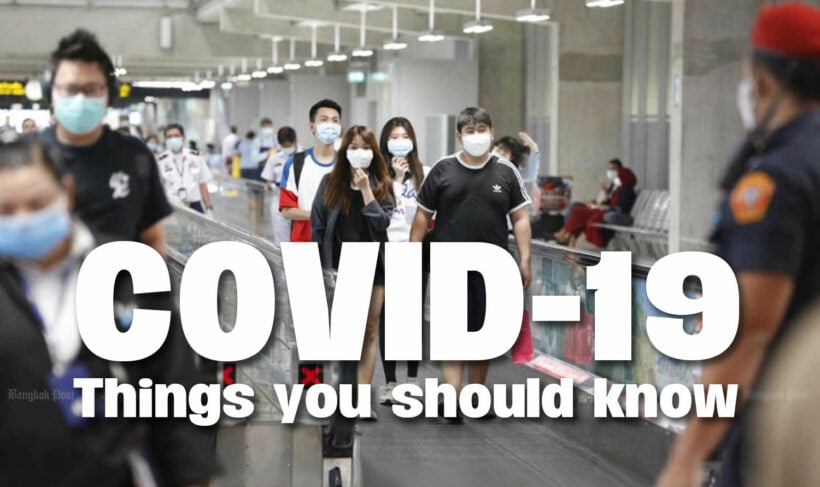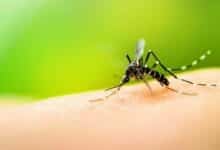Things to know about the Covid-19 Coronavirus

Coronavirus has spread to 176 countries or territories around the world and claimed more than 31,000 lives, as of Sunday, March 29. More than 665,000 people around the world have now been infected, including more than 141,000 who have fully recovered at this stage.
The US has recorded nearly 20,000 new cases in the last 24 hours plus 515 new deaths. Italy had announced a total of 10,023 people dying, 889 in the past 24 hours. The numbers in many parts of the world are now starting to spike at alarming rates and there are limited things you can do as precautions against catching the virus at this stage. The best advice is stay away from other people and be vigilant about your hygiene – it’s your only sure-fire way to remain uninfected
• Stay at home means STAY AT HOME. There are plenty of eager food delivery services available.
• Develop routines, exercise and ensure that you are getting proper nutrition, including fruit and vegetable every day (frozen or canned is OK).
• Maintain excellent personal hygiene including washing your hands thoroughly, especially after touching items and surfaces.
• If you encounter people outside your home, maintain a strict 1.5 – 2 metres of social distancing. Hugs can wait.
• Keep a close eye on the news, especially here in Thailand where the restrictions are changing daily.
The Thaiger has all the latest news on the Covid-19 coronavirus HERE updated hourly and posted 7 days a week.
What is coronavirus disease 2019 (Covid-19)?
Coronavirus disease 2019 (Covid-19) is a respiratory illness that can spread from person to person. The virus that causes Covid-19 is a novel coronavirus that was first identified during an investigation into an outbreak in Wuhan, China sometime in December 2019. Patients were reporting with acute pneumonia-type symptoms which was eventually isolated as a new virus, a novel coronavirus.
How did Covid-19 start?
The virus that causes Covid-19 most probably emerged from a natural animal source around the Chinese city of Wuhan. Scientists currently believe the most likely animal carriers were either local bats or civets (cat-like mammals), but the virus made the leap to humans and started spreading from person to person. Covid-19 WASN’T developed in a laboratory in China – scientists around the world have debunked this early conspiracy theory as scientifically highly implausible, if not impossible.
From that point it was our modern lifestyle that accelerated and allowed the spread of the virus. The human instinct to gather in groups and the opportunity for cheap, safe air travel, has been the perfect mix for spreading a virus. The fast spread of Covid-19 was people jetting around the world, quickly infecting others in planes and airports, and in the countries and destinations they landed.
How do I protect myself?
The two best things you can do right now is avoid contact with other people (social distancing, stay at least 2 metres away) and regular and thorough hand washing, preferably with soap and water, or use an alcohol-based hand sanitiser that contains at least 60% alcohol if soap and water are not available.
Covid-19 can spreads when an infected person coughs or sneezes small droplets from their nose or mouth, packed with the virus, into the air. If you’re in the vicinity you can breath in these tiny droplets or they can land on a surface that you touch later. Then you can touch your eyes, nose or mouth and you become infected too.
Cough and sneeze into tissues (then throw them in the rubbish), and don’t touch your face with unwashed hands. Obviously, avoid close contact with infected people, or people who are at risk of infection, like people who have been travelling recently, to help limit the spread of the virus.
What are the coronavirus symptoms?
Coronavirus infects the lungs. The symptoms usually start with a fever followed by a dry cough, which can lead to breathing difficulties.
This would be a new, continuous cough and means coughing a lot for more than an hour, or having three or more coughing episodes in 24 hours. If you usually have a cough, it may be worse than usual. Some patients can develop pneumonia in one or both lungs, suffer multi-organ failure or even die.
It can takes five days, on average, to start showing symptoms, but some people have developed symptoms sooner, and much later, than this. The World Health Organisation says the incubation period lasts up to 14 days (which is why people are asked to quarantine themselves for 14 days if they believe they may have come in contact with Covid-19).
Some ENT – ear, nose and throat – specialists report rising reports of ‘anosmia’ (loss of smell) as a symptomatic side-effect.
But the evidence for this is only anecdotal and other viruses, like the common cold, could often lead to lost senses of smell or taste.
People will be most infectious when they have obvious symptoms, but it is likely that people can spread the virus even before they are sick or showing any symptoms.
https://youtu.be/1APwq1df6Mw
How deadly is coronavirus?
The proportion of infected people dying from the disease appears to be relatively low (between 1 – 2%), but the current figures are still unreliable. Some countries, like the US and South Korea, have had very low death rates (less than 1%), whilst other countries, like Italy, have had death rates over 10% at this stage. But as different countries have different testing protocols, the statistics can be quite skewed at the moment.
People from babies to the elderly are becoming infected although the danger is mostly for people who are older or have underlying medical conditions, including heart disease, high blood pressure, smokers, asthma sufferers, lung conditions or diabetes.
A recent World Health Organisation research paper including data from 56,000 patients suggests:
- 6% become critically ill – lung failure, septic shock, organ failure and risk of death
- 14% develop severe symptoms – difficulty breathing and shortness of breath
- 80% develop mild symptoms – fever and cough and some may have pneumonia
Data from China also suggests that men appear to be at slightly higher risk of dying from the virus than women. Treatment of critically ill patients relies on keeping the patient’s body functioning, including breathing respirators, until their immune system can fight off the virus.
What should I do if I think I have coronavirus?
If you have mild symptoms, such as a new or continuous cough, or a high temperature or fever, self-isolate at home and inform your family and friends (and don’t ask them to rush over to your house!!).
Don’t go to hospital unless your symptoms get worse. At this stage hospitals and clinics should be kept free for patients with bad symptoms and critically ill patients. But keep you friends and family informed of your situation – just because you’re ‘isolated’ at home doesn’t mean you’re shut off from the rest of the world.
If you have come into contact with somebody who may be infected, you may be told to isolate yourself, or you can decide that you will self-isolate.
Spend a few moments on the internet finding contact numbers of your local nearby hospitals and check the locations so, if you need to go to hospital, you will have the information to get there.
How fast is Covid-19 spreading?
Tens of thousands of new cases are being reported worldwide every day now. But it is widely understood by health professionals that most people are unaware that they may be carriers either because symptoms haven’t started showing or because they had a very mild case. But in both situations, the ‘carriers’ are still highly infectious.
The ‘hotzones’ are changing from day to day, week to week. Initially it was around Wuhan city and the Hubei province in China, then is spread to other populated areas around central China, and beyond. Then cases started popping up in South Korea and smatterings of isolated outbreaks in other parts of the world.
The biggest change was when the virus started infecting Italians, around the northern areas of the country, then spreading to other parts of Europe. Germany, France and Spain also have a large amount of new infections now.
The USA has gone from less than 1,000 cases on March 14, to more than 100,000 cases today. This is mostly due to an accelerated roll out of testing in the US.
Now there are growing numbers of cases in south east Asian countries too.
But this week’s hotzones could become next months ‘contained’ areas. China, the original epicentre of new infections, is now closing its borders to keep foreigners out as it has slowed the rate of new infections to 10s per day, rather than the 1000s per day in the early phases (January, early February 2020).
Is there a vaccine?
No. There is currently no vaccine to protect against Covid-19. Scientists around the world are racing to develop a vaccine and some early testing has started, but it will take up to a year or more before a reliable, safe vaccine is rolled out around the world.
The best way to prevent infection is to take everyday preventive actions, like avoiding close contact with people who are sick or at risk, applying social distancing and maintaining a high level of personal hygiene and general health.
Latest Thailand News
Follow The Thaiger on Google News:


























